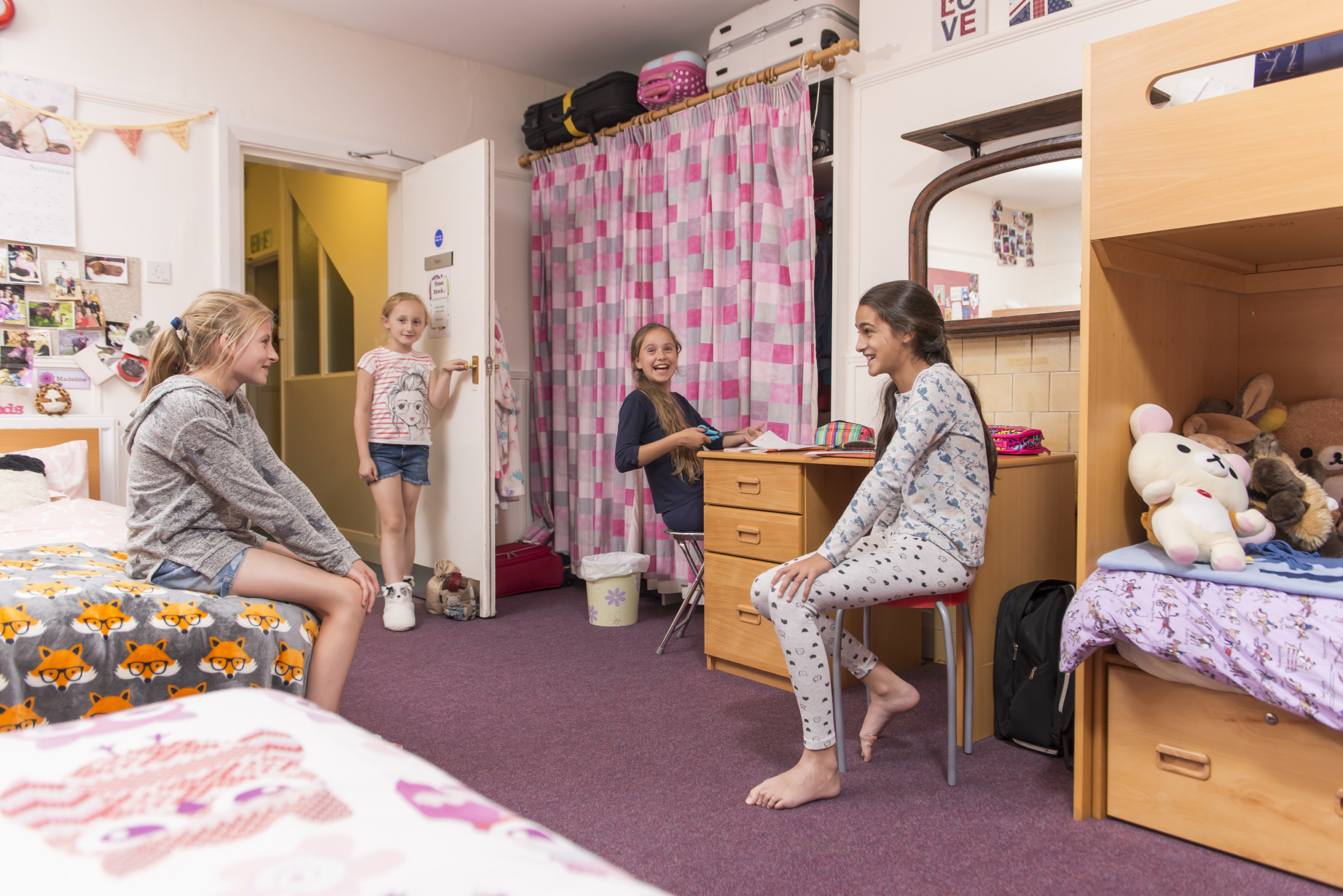When the time comes for your child to leave for boarding school, it can be a moment filled with a mix of emotions. As a parent, you might feel proud of their independence and the opportunities they are about to embrace. At the same time, it is entirely natural to experience feelings of sadness, anxiety, and even guilt. Dealing with your child going to boarding school is a significant transition, not just for them but for you as well.
We will explore the various ways parents can cope with this new chapter in their lives. We will delve into emotional preparation, practical strategies, and ways to maintain a strong bond with your child even when they are away.

Preparing for the Transition to Boarding School
Preparing for the transition to boarding school involves both emotional and practical steps. It’s a significant change not only for the child but also for the entire family. As a parent, your role is to provide support and guidance while managing your own emotions. This section will explore why parents choose boarding schools, how to prepare yourself emotionally, and the practical steps to take before your child leaves for boarding school.
Why Do Parents Choose Boarding School?
There are various reasons why parents might choose to send their child to a boarding school. Understanding these reasons can help alleviate some of the guilt or anxiety associated with the decision.
- Academic Opportunities: Boarding schools often provide a more rigorous academic environment with smaller class sizes and specialized programs. They offer diverse curricula, advanced placement courses, and experienced faculty, all of which can contribute to a child’s academic success.
- Extracurricular Activities: Many boarding schools have a wide range of extracurricular activities that may not be available in local schools. These activities, such as sports, arts, drama, and music, allow children to explore their interests and talents in a supportive environment.
- Special Programs: Some boarding schools offer unique programs that cater to specific needs or interests, such as science and technology, performing arts, or athletics. These programs can provide students with opportunities to excel in areas they are passionate about.
- Social Environment and Peer Group: Boarding schools bring together students from diverse backgrounds, which can help children develop a broader perspective and build a global network of friends. The experience of living away from home in a structured environment can also foster independence, resilience, and maturity.
- Family Circumstances: Sometimes, practical reasons such as frequent relocation due to a parent’s job or a desire for a more stable educational environment can lead to the decision to opt for boarding school.
Choosing a boarding school is not an easy decision, and it often comes with mixed emotions. It is crucial to remember that every family’s situation is unique, and the decision should align with your child’s needs and family values.
How to Prepare Yourself Emotionally for Your Child Going to Boarding School
The emotional preparation of sending your child to boarding school is as vital as the practical steps. As a parent, you may feel a sense of loss or concern about your child’s well-being. Here are some strategies to help you cope:
- Acknowledge Your Feelings: It is normal to feel a range of emotions, including sadness, anxiety, and even relief. Acknowledging these feelings instead of suppressing them is essential. Remember, it is okay to feel emotional about this change.
- Communication with Your Child: Open and honest communication with your child about their feelings and concerns is crucial. Encourage them to share their thoughts and worries, and share your feelings as well. This transparency can strengthen your bond and help both of you prepare emotionally.
- Find Support: You don’t have to go through this transition alone. Joining a parent support group, either in person or online, can provide a platform to share experiences and gain advice from others who have been through similar situations. Professional counseling can also be beneficial if you feel overwhelmed.
- Create a Plan for Staying Connected: Establishing routines for communication, such as weekly phone calls, video chats, or even letter writing, can help maintain a sense of connection. Knowing when you will next speak with your child can provide comfort and structure to both of you.
Case Study:
One parent shared how they dealt with the emotional impact of sending their child to boarding school by keeping a journal. Writing down her feelings daily helped her process emotions and provided a way to track how both she and her child were adjusting over time. She also found comfort in talking to other parents who had gone through similar experiences, which helped her feel less isolated.
Practical Preparations Before Your Child Leaves for Boarding School
In addition to emotional preparation, there are several practical steps you need to take before your child leaves for boarding school. These steps can help ensure a smooth transition for both you and your child:
- Preparing Your Child: Help your child get ready for their new environment by involving them in the packing process. Make sure they have all the necessary clothing, school supplies, and personal items they might need. It is also helpful to familiarize them with the school’s policies, daily schedule, and any rules or expectations.
- Household Adjustments: Adjusting the household routine to accommodate the absence of your child can be challenging. Some parents find it helpful to rearrange the child’s room or repurpose it temporarily, which can provide a new focus and reduce the sense of emptiness.
- Handling Financial Aspects: Boarding school can be a significant financial commitment. It’s essential to understand the tuition, fees, and any additional costs such as travel, personal expenses, and extracurricular activities. Setting up a budget and planning for these expenses can alleviate financial stress.
Sample Boarding School Expense Breakdown
| Expense Type | Estimated Cost (Annual) |
|---|---|
| Tuition | $20,000 – $60,000 |
| Room and Board | $10,000 – $20,000 |
| Books and Supplies | $500 – $1,500 |
| Extracurricular Activities | $1,000 – $3,000 |
| Travel (for visits and breaks) | $1,000 – $5,000 |
| Personal Expenses | $500 – $2,000 |
Taking these steps will help you feel more prepared for your child’s departure to boarding school. The more you can anticipate and plan for both the emotional and practical aspects, the smoother this transition will be for everyone involved.

Coping Strategies for When Your Child Is Away at Boarding School
Once your child has left for boarding school, it’s natural to experience a range of emotions. Feelings of loneliness, anxiety, or concern about your child’s well-being can be overwhelming. However, there are several strategies you can adopt to manage these emotions and maintain a healthy relationship with your child, even from a distance. This section will explore how to stay emotionally connected, manage your own mental health, and encourage your child’s growth and independence.
How to Stay Emotionally Connected with Your Child
Maintaining a strong emotional connection with your child is crucial, especially when they are away at boarding school. Here are some practical ways to ensure that your bond remains strong:
- Regular Communication: Establish a consistent communication schedule that works for both you and your child. Whether it’s a weekly phone call, a daily text message, or a monthly video chat, regular communication helps maintain a sense of connection. It’s essential to strike a balance between staying in touch and giving your child the space to grow and adapt to their new environment.
- Visits and Holidays: Planning visits can provide both you and your child with something to look forward to. Boarding schools often have scheduled breaks, which are great opportunities for family time. Make the most of these moments by engaging in meaningful activities and conversations that reinforce your bond.
- Supporting Independence: While it’s important to stay connected, it’s equally important to encourage your child’s independence. Boarding school is an opportunity for them to learn new skills, make decisions, and develop a sense of autonomy. Celebrate their achievements and offer guidance when needed, but also allow them the space to navigate their own experiences.
Tip: Create a family calendar that includes dates for school breaks, planned visits, and regular communication times. This visual reminder can help both you and your child stay organized and look forward to these moments of connection.
Managing Your Own Emotions and Mental Health
Coping with your child being away at boarding school isn’t just about supporting them—it’s also about taking care of yourself. Here are some strategies to help manage your own emotions and maintain your mental health:
- Dealing with Loneliness and Empty Nest Syndrome: It’s common for parents to feel a sense of loss when a child leaves home for boarding school, a feeling often referred to as “empty nest syndrome.” To combat loneliness, consider engaging in activities that bring you joy, such as joining a club, taking up a new hobby, or volunteering. Staying socially active can help fill the void left by your child’s absence.
- Focusing on Self-Care: Prioritize self-care by engaging in activities that promote well-being, such as regular exercise, meditation, or spending time with friends. Maintaining a healthy lifestyle can improve your mood and help you cope with the emotional challenges of this transition.
- Seeking Professional Help: If you find yourself struggling to cope with your emotions, it might be helpful to seek professional support. A therapist or counselor can provide a safe space to express your feelings and offer strategies to manage anxiety or depression.
Encouraging Your Child’s Growth and Independence
Boarding school offers your child an opportunity to grow academically, socially, and personally. As a parent, your role is to support this growth while fostering their independence. Here’s how you can help:
- Supporting Their Academic and Extracurricular Activities: Show interest in your child’s academic progress and extracurricular pursuits. Ask about their classes, teachers, and activities, and celebrate their successes, no matter how small. Being involved in their school life can help them feel supported and motivated.
- Promoting Problem-Solving Skills: Encourage your child to handle issues independently by promoting problem-solving skills. If they face challenges, guide them through the process of finding solutions rather than immediately stepping in to resolve the situation. This approach helps build resilience and confidence.
- Building Resilience: Boarding school can be a place where children face various challenges, from academic pressures to social dynamics. Encourage your child to view these challenges as opportunities to learn and grow. Teach them the importance of perseverance, adaptability, and self-reflection.
Stages of Adapting to Boarding School
| Stage | Description | Parental Role |
|---|---|---|
| Initial Adjustment | Child feels homesick and unsure about new environment. | Provide emotional support and reassurance. |
| Exploration | Child begins to explore new activities and friendships. | Encourage independence and celebrate exploration. |
| Adaptation | Child starts to adapt to new routines and expectations. | Offer guidance as needed, but allow autonomy. |
| Integration | Child fully integrates into boarding school life and feels more comfortable. | Stay involved in their life while respecting their growth. |
Encouraging your child’s growth and independence is about finding a balance between being supportive and allowing them to navigate their own journey. Remember that every child adapts differently, and your role is to provide the right mix of support, encouragement, and independence.
Coping with your child going to boarding school is a process that involves managing your emotions and supporting your child’s growth. By staying connected, taking care of your mental health, and encouraging independence, you can navigate this transition with confidence and grace.

Maintaining a Positive Relationship with Your Child While They Are at Boarding School
Maintaining a positive relationship with your child while they are at boarding school is crucial for both their emotional well-being and yours. Despite the physical distance, there are many ways to stay connected, show support, and reinforce the family bond. In this section, we will discuss the importance of positive communication, how to support your child’s academic and social life from afar, and tips for celebrating special moments and milestones.
Importance of Positive Communication
Communication is the foundation of any healthy relationship, especially when distance is involved. Establishing and maintaining positive communication with your child while they are away at boarding school can help ease homesickness and reinforce emotional bonds. Here are some tips for fostering effective and meaningful communication:
- Be an Active Listener: When speaking with your child, focus on being an active listener. This means giving them your full attention, acknowledging their feelings, and avoiding interruptions. Active listening helps your child feel heard and understood, which can strengthen your relationship.
- Use Open-Ended Questions: Instead of asking questions that can be answered with a simple “yes” or “no,” try using open-ended questions that encourage your child to share more about their experiences. For example, instead of asking, “Did you have a good day?” you might ask, “What was the most interesting thing that happened today?”
- Stay Positive and Supportive: Keep the tone of your conversations positive and encouraging. If your child shares a problem or challenge, offer support and reassurance without immediately jumping to solve the issue. Validate their feelings and provide guidance when appropriate, helping them to develop their own problem-solving skills.
- Respect Their Privacy and Space: It’s essential to strike a balance between staying connected and respecting your child’s need for independence. While regular communication is important, avoid being overly intrusive or demanding. Allow your child to share information at their own pace, and respect their privacy.
Tip: Establish a communication routine that suits both you and your child’s schedules. Consistency can provide a sense of security and help maintain a strong emotional connection.
Supporting Your Child’s Academic and Social Life from Afar
Even from a distance, parents play a significant role in supporting their child’s academic success and social development at boarding school. Here are some ways to stay involved in your child’s school life:
- Stay Informed About School Activities: Keep up-to-date with the school calendar, newsletters, and bulletins to stay informed about important events, such as parent-teacher conferences, school performances, or sports events. Being aware of these activities allows you to discuss them with your child and show your support.
- Encourage Academic Progress: Show interest in your child’s academic progress by asking about their classes, teachers, and assignments. Celebrate their achievements, no matter how small, and offer encouragement during challenging times. If needed, consider scheduling occasional check-ins with their teachers to stay informed about their academic performance.
- Support Social Development: Boarding school provides a unique environment for social growth, with opportunities to make new friends and develop social skills. Encourage your child to participate in extracurricular activities, clubs, and social events that interest them. These experiences can help them build a sense of belonging and enhance their social development.
- Create a Home Away from Home: Sending care packages with favorite snacks, books, or personal items can help your child feel connected to home. A thoughtful letter or a surprise package can provide comfort and remind them of your love and support.
Case Study:
One parent found that sending a monthly “care package” with items like homemade cookies, a favorite book, or even a small handwritten note made a big difference in maintaining a strong connection with their child. These small gestures helped bridge the distance and provided comfort during times of homesickness.
Celebrating Special Moments and Milestones
Celebrating special moments and milestones is an excellent way to stay connected and show your child that you are proud of their accomplishments, even when they are away. Here are some tips for celebrating these occasions:
- Acknowledge Birthdays and Holidays: Make an effort to celebrate birthdays, holidays, and other significant occasions. If a visit is not possible, consider arranging a special video call or sending a thoughtful gift or card to mark the occasion.
- Celebrate Achievements: Whether it’s a good grade, a sports victory, or a successful performance, recognize and celebrate your child’s achievements. Acknowledge their hard work and let them know you are proud of their efforts. Even a simple congratulatory message can have a significant positive impact.
- Plan Surprises: Occasionally, plan a surprise visit or a special outing when your child is home for a break. These unexpected gestures can create lasting memories and help strengthen your bond.
Maintaining a positive relationship with your child while they are at boarding school requires effort, communication, and creativity. By staying involved, supporting their growth, and celebrating special moments, you can continue to build a strong, loving relationship despite the distance.